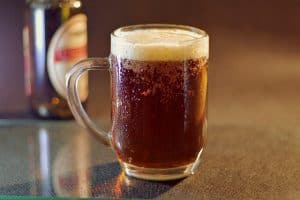Alcoholic beverages can be an enjoyable and mildly impactful part of a healthy diet, for those that choose to partake. But there are important considerations to remember.

Alcohol has calories
Alcohol has calories – 7 per gram. And while alcohol in pure form isn’t normally imbibed in large quantities, it is often part of beverages that have a high calorie count. Sugary mixed drinks, beer, wine, and many other types of alcoholic drinks all have significant calories. If you are trying to lose weight, or to keep weight off, try to keep away from alcoholic drinks as much as possible.
Alcohol is not harmless in moderation
It’s been known for a long time that heavy drinking and alcohol abuse has both serious short-term and long-term health consequences – so we’re not going to recap those here. But more importantly, recent studies have shown that alcohol has adverse impacts on health even for moderate use.

It’s true that light to moderate drinking can improve your HDL (the good cholesterol), and that some alcoholic drinks such as red wine have high levels of beneficial antioxidants.
But moderate drinking also appears to have impact on brain structure and function.
A recent study that involved 500 men and women over a 30 year period showed increased levels of “hippocampal atrophy” for those consuming moderate amounts of alcohol. The hippocampus is the part of the brain that helps in memory and spatial navigation. Damage in this area can cause memory loss and disorientation. This is not a good thing for anyone who wishes to maximize their quality of life, especially into advanced age.
How was moderate drinking defined in this study? Moderate is defined as between 14 and 21 alcohol servings in a week. This equates to between 10 and 14 beers (12 oz, 4% alcohol) in a week. That’s not a lot, but not a little either.
Fit At Midlife Bottom Line:Alcohol can be a significant source of calories, and otherwise is an empty nutrient.
Moderate drinking (as few as 10 beers per week) appears to be related to changes in brain structure and function that adversely impact memory and spatial navigation.
While some forms of alcoholic consumption have minor health benefits (antioxidants in red wine, increased HDL) there are better ways to achieve those same effects, that don’t have any risk to brain function.
Make an informed decision if you partake in any level of alcohol consumption.
References
- Elizabeth R. De Oliveira e Silva, David Foster, Monnie McGee Harper, Cynthia E. Seidman, Jonathan D. Smith, Jan L. Breslow, Eliot A. Brinton, “Alcohol Consumption Raises HDL Cholesterol Levels by Increasing the Transport Rate of Apolipoproteins A-I and A-II.”, Circulation. 2000;102:2347-2352
- A. Topiwala, et al. “Moderate alcohol consumption as risk factor for adverse brain outcomes and cognitive decline: longitudinal cohort study.” BMJ 2017;357:j2353
- T.S. Mohamed Saleem and S. Darbar Basha, “Red wine: A drink to your heart.”, J Cardiovasc Dis Res. 2010 Oct-Dec; 1(4): 171–176.

Tim is the founder of FitAtMidlife.com – an avid gym rat for 30+ years, he’s a reviewer of many, many shoes – and founder of the Speed Bag Gathering – the world’s only gathering of speed bag punching enthusiasts. See more gym reviews at Tim’s YouTube channel.

